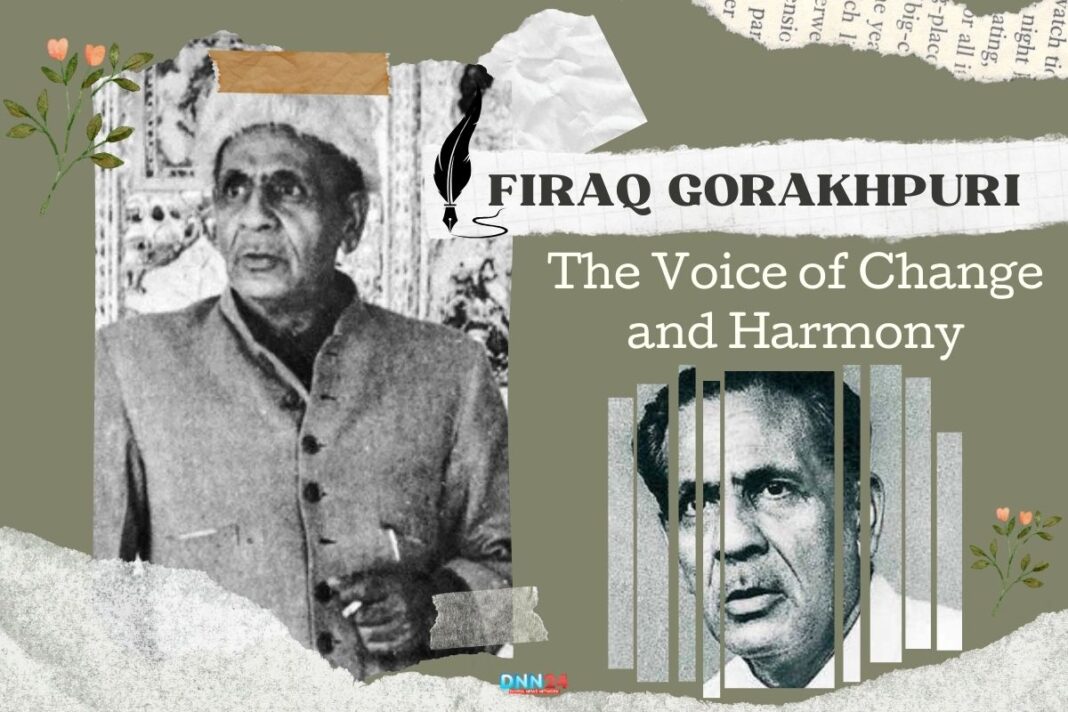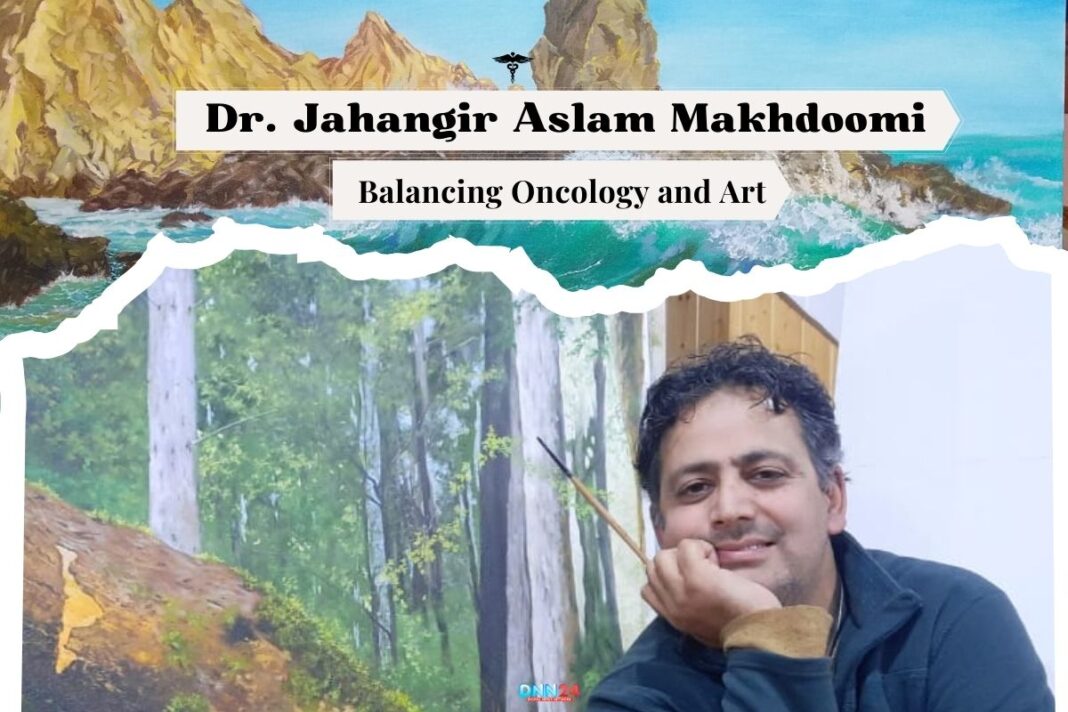When we talk about the soul of Urdu poetry, Firaq Gorakhpuri’s name comes alive like a gentle breeze in the garden of literature. His real name was Raghupati Sahay, but the world knows him as Firaq Gorakhpuri. Firaq was born in Gorakhpur on 28 August 1896 and grew up with stories and poetry being a regular part of life in his noble family. Even while young, he began using words to create poems about love and longing.
Although his poetry is simple, it has a powerful effect on our emotions. His words fall gently, refreshing the listener and giving them hope. He felt that poetry should show feelings and remind people of what life is really like. All his shayari reach the heart, whether people are enjoying companionship or grieving over loss. His poems are always spoken at gatherings with respect and love.
Haath aaye to wohi daaman-e-jaan ho jaaye,
Firaq Gorakhpuri
Samajhta hoon ke tu mujh se juda hai
The poetry of Firaq addresses society, equality, humanity, and love. No matter their religion or background, he supported national integration and thought all people were together. East and West, tradition and current ideas, East and West, combine to create his life and work—above all, a celebration of the human spirit.
Early Inspired Years: The Birth of a Poet
Firaq Gorakhpuri’s childhood was filled with stories, melodies, and the aroma of books. Growing up in Gorakhpur, he was surrounded by the beauty of nature and family affection. His father would frequently tell stories from old books and perform poetry. Early events set the creative seeds in young Raghupati’s heart.
Even as a small child, he was perceptive to his surroundings. He would try to convey in his words the beauty of the changing seasons, the flowering blossoms, and the soft rivers. His first poem, written while seated by the window and observing the rain fall, was about the monsoon. Seeing his enthusiasm, his mother pushed him to keep writing.
Aankhon mein jo baat ho gayi hai,
Firaq Gorakhpuri
Usi se meri zindagi roshan hai.
Firaq pursued his education in Lucknow, where he studied Urdu, Persian, and English literary works. The student exhibited exceptional brilliance yet remained perpetually eager to expand his knowledge. The educators who taught him recognised his poetic abilities and frequently extended invitations for classroom poetry recitations. His poetic growth emerged from the influence of these simple, supportive actions.
The Journey of Struggle: From Civil Service to Poetry
Upon finishing his studies, Firaq Gorakhpuri joined the esteemed ranks of the Provincial Civil Service. His heart drifted far from bureaucratic records and official gatherings. A desire for existence intertwined with linguistic expressions and mental reflections consumed him. Mahatma Gandhi’s call for freedom drove him to leave his job and participate in the non-cooperation movement. This decision changed his life forever. During his 18-month imprisonment, he continued writing poetry on paper scraps even while incarcerated.
Main hoon, dil hai, tanhaayi hai,
Firaq Gorakhpuri
Ishq mein sach hi ka rona hai.
After his release, Firaq joined Allahabad University as a professor of English literature. He discovered the perfect environment to write here, surrounded by youthful minds and stimulating discussions. His famous poetry, including his masterwork ‘Gul-e-Ra’naa’, was written during this period. His days were spent teaching, while his nights were devoted to poetry.
Firaq’s Shayari: The Language of Love and Pain
Firaq Gorakhpuri’s shayari is like a mirror reflecting the joys and tragedies of life. He wrote about love in a way that made every heart skip a beat. His couplets are simple, yet they convey layers of significance. He thought that love is not merely an emotion, but a journey-a journey filled with hope, longing, and occasionally, tragedy.
Dil mein kuch gham hai, kuch surur bhi hai,
Firaq Gorakhpuri
Aaj bhi qafila-e-ishq rawaan hai ke jo tha.
His poetry is not limited to romantic love. He wrote on the beauty of nature, the challenges of the average man, and the pain of separation. His comments are reassuring, like a friend who understands your deepest sentiments. He often claimed that poetry should be like a conversation, easy to understand and near to the heart.
Life’s Unheard Kissey: Stories from Firaq’s Diary
Behind every famous poet, some stories remain concealed from the world. Firaq Gorakhpuri’s life is filled with such unheard-of kissey. One such story is about his first public poetry recital. He was apprehensive, his hands quivering, but as he began to recite, the audience fell silent, fascinated by his words. After the occurrence, an old man came to him and said, “Beta, tumne mere dil ki baat keh di.” This moment provided Firaq the confidence to keep composing and sharing his poetry.
Koi samjhe to ek baat kahun,
Firaq Gorakhpuri
Tere bina zindagi adhoori si lagti hai
Another story is from his days at Allahabad University. Once, a student came to him, worried by personal concerns. Firaq listened intently and then penned a couplet for him, saying, “Whenever you feel lost, remember these words.” The student later claimed that such lines strengthened him during difficult times.
Firaq’s Nazm: The Heartbeat of His Poetry
If the ghazal is the spirit of Urdu poetry, then the nazm is its heartbeat. Firaq Gorakhpuri’s nazms are famous for their emotional depth and romantic beauty. He penned nazms about every facet of life, love, nature, society, and the problems of the average man. His nazms are not just poems but stories, confessions, and anthems of hope.
Shaam gham kuch is nigah-e-naaz ki baatein karo,
Firaq Gorakhpuri
Jin ki zindagi daaman tak hai bechare farzane hain.”
Firaq’s nazms are infused with the scent of love and the sorrow of desire. He thought that true love is forever, and his nazms commemorate this eternal relationship. His vocabulary is basic, but his emotions are intense. He typically used everyday events to describe deep thoughts, making his nazms approachable to everyone.
The Progressive Voice: Poetry for Equality and Change
Firaq Gorakhpuri was not merely a poet of love but also an advocate for social reform. He believed in equality and fairness for all. His poetry generally railed against inequality based on caste, religion, or gender. He was influenced by the progressive movement and used his words to inspire others to fight for their rights.
Zaat paat ka bhed mitega,
Firaq Gorakhpuri
Hindu Muslim bhed mitega,
Aurat mard barabar honge,
Chote bade barabar honge.
His nazms and ghazals offered strength to the average man, especially the working class. He thought that poetry should not merely entertain, but also inspire and empower. Through his words, he brought the problems and dreams of regular people into the world of literature.
Awards, Recognition, and Lasting Legacy
Firaq Gorakhpuri’s contribution to Urdu poetry was honoured with various awards. He earned the Jnanpith Award for his magnum opus, Gul-e-Naghma, the Sahitya Akademi Award, and many more. He was also acknowledged as Producer Emeritus by All India Radio and worked as a Research Professor at the University Grants Commission.
But for Firaq, the real reward was the affection and respect of his fans. His poetry is recited in every corner of India and anywhere Urdu is appreciated. He spent his last years in New Delhi and passed away on 3 March 1982, leaving behind a treasure of words that continue to inspire generations.
Firaq’s Romantic Nazm: A Simple, Poetic Journey
Let’s enter the world of Firaq’s nazm, where every syllable is drenched in love and longing. His nazms are like a walk in a moonlit garden, where every flower tells a narrative and every breeze carries a message.
Aankhon mein jo baat ho gayi hai,
Firaq Gorakhpuri
Usi se meri zindagi roshan hai.
In his nazms, love is not simply about meeting, but also about waiting, hoping, and occasionally, letting go. He wrote of the beauty of a beloved’s eyes, the pleasure of recollections, and the anguish of separation. His nazms are simple, yet they hit the heart deeply.
Ashk ki gulfishaniyan na gayen,
Firaq Gorakhpuri
Dil mein kuch gham hai, kuch surur bhi hai
Firaq’s nazms are typically repeated at romantic gatherings, weddings, and even during periods of seclusion. They remind us that love is both joy and agony, and that every moment spent with a loved one is valuable.
The Enduring Magic of Firaq Gorakhpuri.
Firaq Gorakhpuri’s poetry is like a lamp that never goes out. His words continue to bring light to hearts, consolation, hope, and inspiration. He is the poet who made love beautiful, pain bearable, and life worthwhile with his simple, emotive, and poetic sentences.
Aaj bhi qafila-e-ishq rawaan hai ke jo tha,
Firaq Gorakhpuri
Gham tera jalva gah-e-kaun o makaan hai ke jo tha.
His legacy is not simply in books and awards, but in the innumerable lives he impacted. He taught us that poetry is not just about rhyme and rhythm, but about sentiments, understanding each other, and making the world a better place.
Also Read: Waseem Barelvi: The Eternal Flame of Urdu Poetry
You can connect with DNN24 on Facebook, Twitter, and Instagram and subscribe to our YouTube channel.



